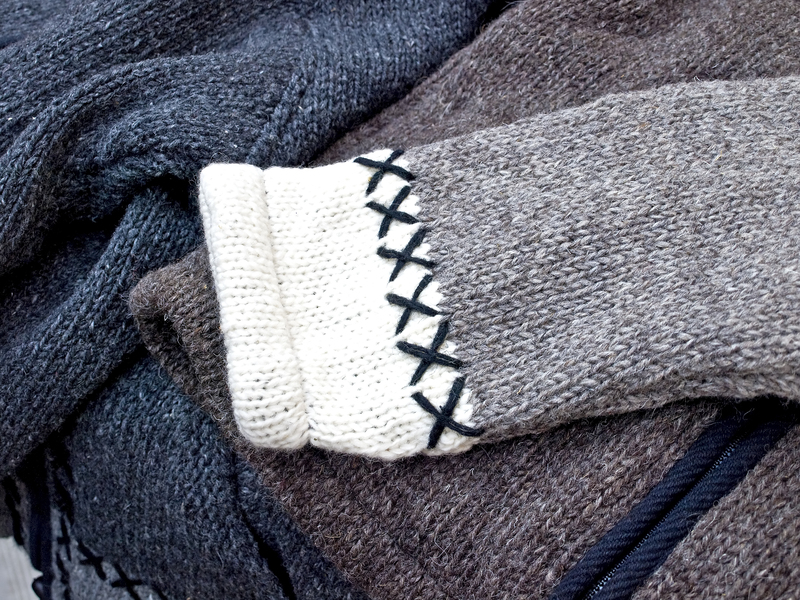Recycling Old Cookware: An Eco-Conscious Approach
In today's increasingly environmentally aware society, recycling old cookware has become an essential aspect of sustainable living. Many households accumulate pots, pans, and kitchen utensils over the years, and the question often arises: What should you do with old cookware? Instead of simply discarding these items in the trash, which adds to the growing landfill problem, there are several eco-friendly ways to manage and recycle old cookware effectively. This comprehensive guide explores the best practices, local options, creative ideas, and environmental impacts associated with recycling your worn-out kitchenware.

The Environmental Importance of Recycling Cookware
Each year, millions of tons of household waste end up in landfills, contributing to environmental degradation and resource depletion. Traditional cookware, especially non-stick pans, aluminum, stainless steel, and cast iron pots, can take hundreds of years to break down. Recycling old cookware not only conserves resources but also helps in reducing pollution and the demand for raw materials.
- Reduces landfill waste: Cookware that ends up in landfills occupies significant space and may release hazardous substances as coatings break down.
- Conserves energy and resources: Recycling metals saves up to 95% of the energy required compared to processing new raw materials.
- Reduces environmental pollution: Disposing of Teflon-coated pans improperly can release harmful chemicals into the soil and water.
By adopting a more mindful, responsible attitude toward old pots and pans, you can play an important role in building a more sustainable future.
Types of Cookware Suitable for Recycling
Not all cookware is made equal; their recyclability depends on the materials used. Identifying the material of your old cookware is the first step in ensuring it is recycled properly. Let's examine the most common types:
Aluminum Pots and Pans
Aluminum cookware is highly recyclable. Many curbside recycling programs accept pure aluminum pots and pans. However, if your pans are coated with non-stick surfaces, it's important to check local guidelines, as coatings may require special processing.
Stainless Steel Cookware
Stainless steel is another material that is 100% recyclable. It does not degrade through the recycling process, making it an excellent candidate for reprocessing and use in new products.
Cast Iron
Cast iron cookware is extremely durable and, when it does reach the end of its life (for example, if it cracks), it can be dropped off at metal recycling centers. Some scrap metal recyclers even pay for old cast iron.
Copper and Brass Cookware
Copper pots and brass pans are also recyclable. Due to the higher value of these metals, taking them to a scrap yard is often worthwhile.
Non-Stick or Teflon-Coated Pans
Non-stick cookware presents a unique recycling challenge. Teflon and other PTFE coatings can't be recycled with metals in their original form. Some specialized recycling centers can process these items, but always check before dropping them off.
How to Prepare Your Old Cookware for Recycling
Before taking your unwanted kitchenware to a recycling facility, take the following steps to ensure it is ready for processing:
- Clean thoroughly: Remove any food residues, oils, or rust to help streamline the recycling process.
- Remove plastic, wood, or rubber handles: Only the metal parts of cookware are recyclable in most cases.
- Separate materials: If your pan includes multiple materials (e.g., glass lids, wooden handles), disassemble these components as much as possible.
Contact your local recycling authority for their specific requirements and to confirm if special handling is necessary for specific coatings or multi-material items.
Where to Recycle Old Cookware
Disposing of old kitchenware responsibly requires knowing where to recycle cookware in your area. Here are some of the best places to look:
Curbside Recycling Programs
Some municipalities accept metal cookware in curbside bins. However, always confirm with your local waste management service, as not all programs process bulky kitchenware or non-stick surfaces.
Scrap Metal Yards
Most scrap metal yards accept a broad range of metals, including aluminum, stainless steel, copper, and cast iron cookware. Scrap yards are especially useful for disposing of large, heavy, or mixed-metal pots and pans. Some facilities may even offer payment for valuable metals.
Specialized Recycling Facilities
For items like Teflon-coated pans or those with composite materials, seek out facilities that handle specialty items. Many cities have 'drop-off' points for hard-to-recycle goods.
Retail Take-Back Programs
Certain retailers and cookware brands offer take-back programs for old kitchenware when purchasing new products. These programs ensure your cookware is disposed of responsibly or upcycled into new products.
- Check with stores like Bed Bath & Beyond, Williams-Sonoma, or Crate & Barrel.
- Some brands, such as GreenPan and Le Creuset, provide recycling discounts or trade-in events.
Creative Ways to Repurpose Old Cookware
If your cookware is no longer functional for cooking, it doesn't have to end up in the recycling bin. There's a growing trend in upcycling cookware, turning old pots and pans into unique household items, garden planters, art projects, and more.
- Garden planters: Drill holes in the bottom of pots and pans to create charming planters for flowers and herbs.
- Wall art: Cast iron pans and copper pots make attractive rustic wall decor, especially when polished or painted.
- Organizer trays: Old baking sheets can be turned into magnetic boards or drawer organizers.
- Bird feeders: Hang old ladles or saucepans for creative and functional bird feeders.
Upcycling not only extends the life of your cookware but also brings a personal, creative touch to your home or garden, supporting the circular economy.
Donation: Give Old Cookware a Second Life
If your kitchenware is still functional but you're upgrading or downsizing, consider donating. There are numerous organizations, shelters, and non-profits that welcome cookware in good condition.
- Goodwill and Salvation Army: Accept gently used pots and pans at most locations.
- Local shelters and food pantries: Many community kitchens and charities rely on donated cookware for serving those in need.
- Online community groups: Websites like Freecycle, Nextdoor, or Craigslist offer platforms to give away unwanted items to neighbors.
By donating, you contribute to less waste, help others, and make a positive community impact.
Why Not Simply Throw Away Old Cookware?
It's tempting to toss an old, battered pan into the trash. However, traditional disposal methods have several drawbacks:
- Landfill burden: Metal and non-stick coatings add to long-lasting landfill waste.
- Toxin leaching: As cookware breaks down, it may release dangerous chemicals such as PFAS into the environment.
- Waste of resources: Discarding recyclable metals is a lost opportunity to conserve valuable materials.
*The environmental footprint can be minimized by recycling, donating, or creatively reusing old kitchenware*, making it a far superior choice than disposal.
Tips for Buying Sustainable Cookware
To further reduce your impact, invest in sustainable cookware options that last longer and are easier to recycle at end of life. Here's what to look for:
- Durable materials: Choose cast iron, stainless steel, or copper, which can serve for decades with proper care.
- Recycled content: Some brands use recycled metals in their products--search for companies with green certifications.
- Non-toxic coatings: Avoid cookware containing PFAS, PTFE, or PFOA; seek out ceramic or seasoned cast iron for nonstick needs.
- Brand take-back programs: Buy from manufacturers who offer end-of-life recycling or upcycling for their products.
Making thoughtful purchases today leads to easier recycling and sustainability tomorrow.

Common Questions About Recycling Old Cookware
Do recycling centers accept nonstick pans?
This depends on your local recycling facility. While most metal recyclers accept aluminum or steel pans, non-stick coatings can complicate the process. Check with your provider, and look for specialized recycling programs for Teflon or ceramic-coated pans.
Can I recycle cookware with plastic handles?
Generally, plastic and wood handles must be removed before recycling. Some facilities may accept the item if the handle is a minor component, but separating different materials increases recycling efficiency.
Should I recycle glass lids with pots and pans?
Most glass lids are made from tempered glass, which cannot be mixed with regular glass recycling. However, some centers accept tempered glass in a separate batch. Be sure to ask your local recycling program.
How can I recycle damaged or burnt cookware?
As long as the material is metal (aluminum, cast iron, steel), even damaged or burnt cookware can be recycled at metal recycling centers. Just ensure it's clean and free of food residue.
Are there eco-friendly cookware disposal events?
Some cities host special sustainability or hazardous waste collection events allowing residents to dispose of kitchen equipment, electronics, and other challenging items responsibly.
Conclusion: Embrace Eco-Conscious Living by Recycling Cookware
Recycling old cookware is a simple yet significant action in your environmentally conscious lifestyle. By responsibly disposing, donating, or reusing kitchenware, you conserve valuable resources, minimize pollution, reduce landfill burden, and help your community. The next time you upgrade your kitchen or discover an old pan in your cupboard, remember that every small eco-conscious choice truly makes a world of difference.
Start today--recycle your old cookware, inspire others, and become a champion for sustainable living in your home and beyond!